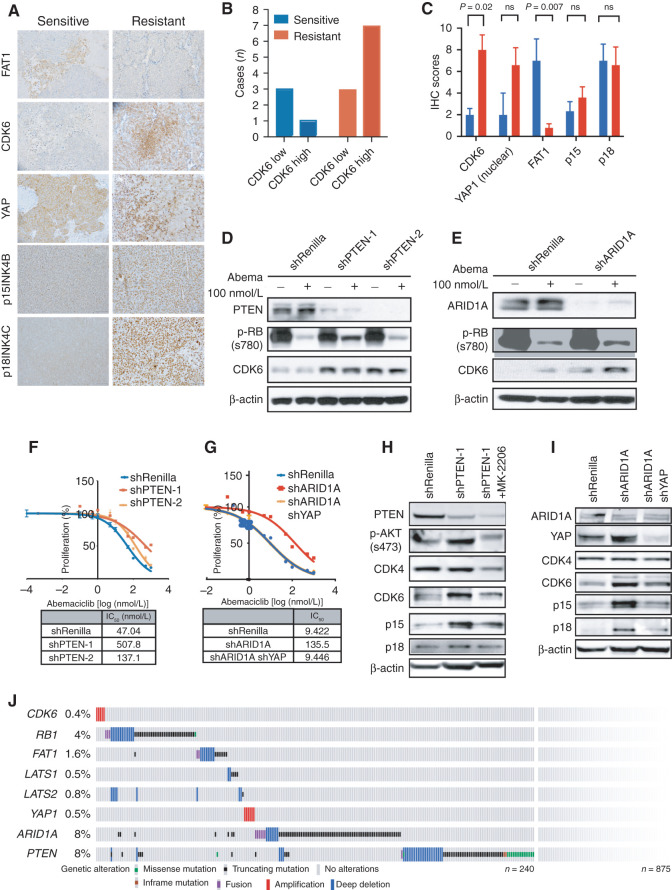Figure 3.
Multiple genetic alterations promote CDK6-mediated resistance in patients. A, IHC of FAT1, CDK6, YAP, p15INK4B, and p18INK4C in representative patient-derived xenograft (PDX) models that are sensitive or resistant to CDK4/6i. B, Number of cases that show high or low CDK6 in PDX models that are sensitive or resistant to CDK4/6i. Immunoreactive score (IRS) >2 is recorded as high CDK6 expression. C, IRS of CDK6, nuclear YAP, FAT1, p15, and p18 staining in sensitive and resistant PDX models. D and E, Immunoblotting demonstrating that knockdown of PTEN or ARID1A in MCF7 cells promotes upregulation of CDK6 and resistance to 100 nmol/L abemaciclib (abema) treatment. Cells were treated for 24 hours prior to collection. ns, not significant. F, Cell viability (percentage of control cells) plots showing that both PTEN knockdown cells have decreased sensitivity to abemaciclib compared with parental cells. IC50 values were recorded on day 5. Data are shown as mean ± SD; n = 6. G, Cell viability (percentage of control cells) plots showing that ARID1A knockdown cells have decreased sensitivity to abemaciclib compared with parental cells. Knockdown of YAP1 in shARID1A cells restores its sensitivity to abemaciclib. IC50 values were recorded on day 7. Data are shown as mean ± SD; n = 6. H, Immunoblotting showing inhibition of AKT (2 μmol/L MK-2206) suppresses induction of CDK6 expression in PTEN knockdown cells. I, Immunoblotting showing that knockdown of YAP1 in shARID1A cells decreases CDK6 expression. All blots were repeated at least three times, and representative blots are shown. J, The pattern, frequency, and type of genomic alterations in CDK6-associated genes in 1,366 metastatic tumors from 1,115 patients with HR+/HER2− metastatic breast cancer. A total of 190 cases show at least one of the genetic alterations associated with CDK6 upregulation. See also Supplementary Fig. S3.

